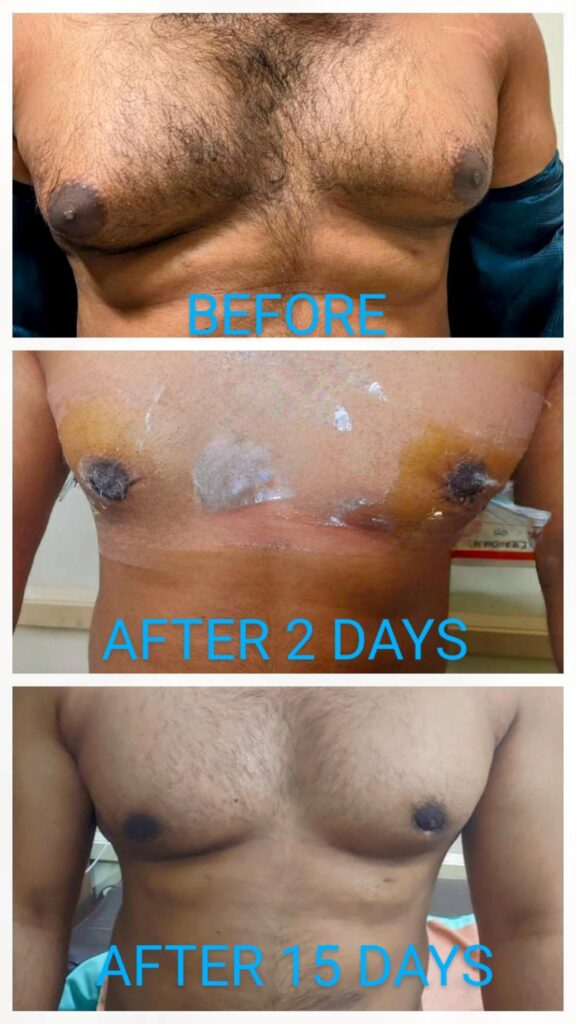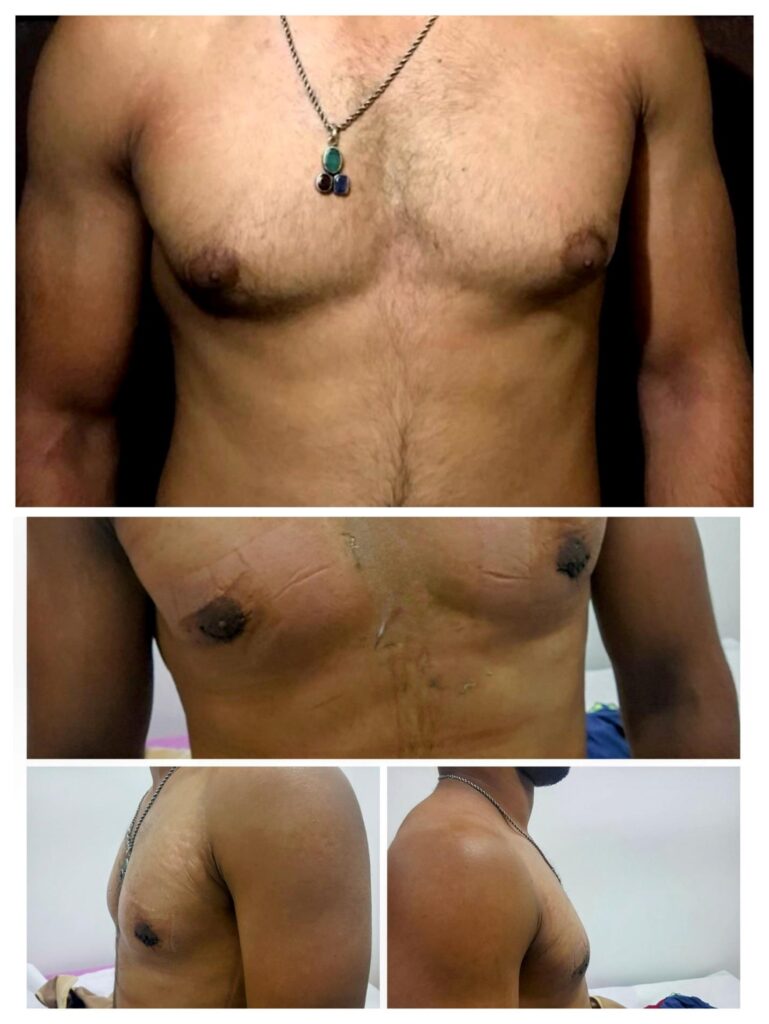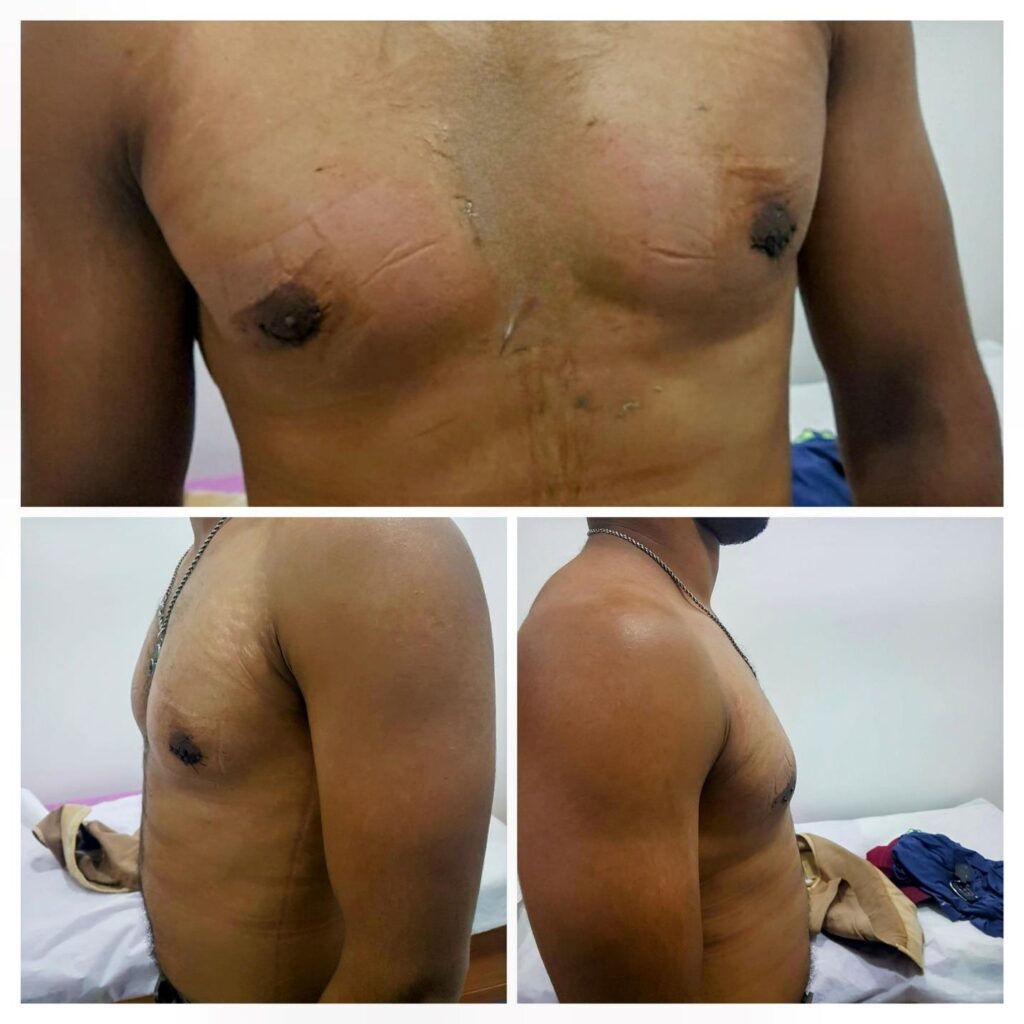Do you feel self-conscious about your condition of male breasts? Seeking ways to achieve a flat, masculine chest like other individuals?

Gynecomastia: Understanding Enlarged Male Breasts
Gynecomastia is a common condition that causes the enlargement of breast tissue in males. It can affect individuals of any age and can be caused by hormonal imbalances, medications, health conditions, or age.
Gynecomastia is the enlargement of glandular breast tissue in males, leading to the appearance of “man boobs.” It is different from pseudogynecomastia, which is caused by excess fat deposits rather than breast tissue growth.
Hormonal imbalances, such as an increase in estrogen relative to testosterone, can cause gynecomastia. This imbalance can occur during certain stages of life like puberty or as a result of medications or health conditions. Medications like antiandrogens, antibiotics, and antidepressants can contribute to gynecomastia, and certain health conditions like hypogonadism or liver disease can also trigger it.
The primary symptom of gynecomastia is the enlargement of breast tissue, which may be accompanied by breast tenderness, swelling, and pain. A healthcare professional can diagnose gynecomastia through a physical examination, medical history review, imaging tests, and blood tests to assess hormone levels and rule out underlying health conditions.
Treatment options for gynecomastia:
In mild cases, watchful waiting may be recommended, as gynecomastia often resolves on its own. Medications like selective estrogen receptor modulators or aromatase inhibitors can help regulate hormone levels and reduce breast tissue enlargement. In severe cases or when other treatments are ineffective, surgery may be considered to remove excess fat or glandular tissue.
Before & After Pictures

Struggling with the issue of male breast development? Aiming to attain a flat, masculine chest similar to the general male population?





Prevention tips for gynecomastia include maintaining a healthy weight through regular exercise and a balanced diet, avoiding the use of illegal substances like anabolic steroids, and engaging in physical activity to maintain hormonal balance.
Living with gynecomastia can be challenging, both physically and emotionally. Seeking support from healthcare professionals or support groups can provide valuable guidance and reassurance to manage the condition effectively and regain confidence.
FAQs
In many cases, gynecomastia may go away on its own, especially during puberty or
after a hormonal imbalance resolves. However, it is important to consult a healthcare
professional for a proper diagnosis and guidance.
Gynecomastia itself is not a sign of breast cancer. However, some symptoms of
gynecomastia, such as nipple discharge or a lump, may require further evaluation to
rule out breast cancer.
Yes, gynecomastia can be treated without surgery in some cases. Depending on the
underlying cause and severity, watchful waiting or medication may be recommended
as non-surgical treatment options.
While no specific natural remedies have been proven to treat gynecomastia, adopting
a healthy lifestyle, including regular exercise and maintaining a healthy weight, can
help reduce the risk and manage the condition.
Yes, gynecomastia can significantly impact self-esteem, causing emotional distress
and affecting body image. Seeking support from healthcare professionals or support
groups can provide guidance and assistance in managing the condition’s
psychological effects.
